
Gong are a psychedelic rock band that incorporates elements of jazz and space rock into their musical style. The group was formed in Paris in 1967 by Australian musician Daevid Allen and English vocalist Gilli Smyth. Band members have included Didier Malherbe, Pip Pyle, Steve Hillage, Mike Howlett, Tim Blake, Pierre Moerlen, Bill Laswell and Theo Travis. Others who have played on stage with Gong include Don Cherry, Chris Cutler, Bill Bruford, Brian Davison, Dave Stewart and Tatsuya Yoshida.
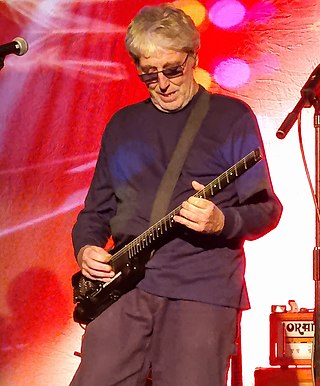
Stephen Simpson Hillage is an English musician, best known as a guitarist. He is associated with the Canterbury scene and has worked in experimental domains since the late 1960s. Besides his solo recordings he has been a member of Khan, Gong and System 7.
David Lloyd Stewart is an English keyboardist and composer known for his work with the progressive rock bands Uriel, Egg, Khan, Hatfield and the North, National Health, and Bruford. Stewart is the author of two books on music theory and wrote a music column for Keyboard magazine (USA) for thirteen years. He has also composed music for TV, film and radio, much of it for Victor Lewis-Smith's ARTV production company. He has worked with singer Barbara Gaskin since 1981.
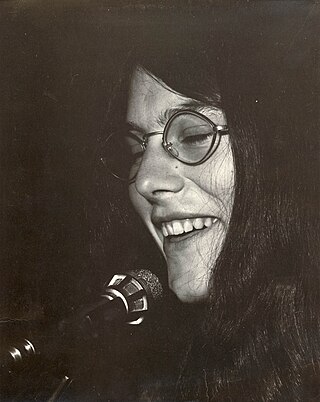
Barbara Gaskin is an English singer formerly associated with the UK Canterbury scene.

Caravan are an English rock band from the Canterbury area, founded by former Wilde Flowers members David Sinclair, Richard Sinclair, Pye Hastings, and Richard Coughlan in 1968. The band have never achieved the great commercial success that was widely predicted for them at the beginning of their career, but are nevertheless considered a key part of the Canterbury scene of progressive rock acts, blending psychedelic rock, jazz, and classical influences to create a distinctive sound.
Hatfield and the North were an experimental Canterbury scene rock band that lasted from October 1972 to June 1975, with some reunions thereafter.
National Health were an English progressive rock band associated with the Canterbury scene. Founded in 1975, the band featured members of keyboardist Dave Stewart's band Hatfield and the North and Alan Gowen's band Gilgamesh, including guitarists Phil Miller and Phil Lee and bassist Mont Campbell as original members. The band was named after Stewart's National Health spectacles. Bill Bruford was the initial drummer, but was soon replaced by Pip Pyle. Campbell was replaced by Neil Murray and then John Greaves. Alan Gowen left the group before its first album, but returned for their final tours, replacing Dave Stewart, who resigned after their second album. Amanda Parsons sang with the group in its original lineup but also appeared on the first album only as a guest; the group never had another full-time vocalist, although Richard Sinclair appeared a few times as a guest vocalist, and Greaves sang on one track of the second album and occasionally in concerts. Guitarist Phil Miller was National Health's only constant member.
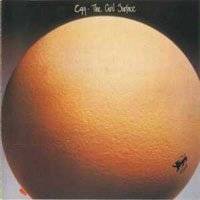
The Civil Surface is the third and final studio album by the English progressive rock band Egg, originally released in 1974 on Caroline Records. The band had broken up in 1972, leaving some of their favourite stage pieces unrecorded. At organist Dave Stewart's suggestion, the trio re-united solely to record these final numbers. Among the guest musicians on the album are Steve Hillage (guitar), Lindsay Cooper and vocalists Amanda Parsons, Ann Rosenthal and Barbara Gaskin.

Spirogyra were a British folk rock/prog band that released three albums between 1971 and 1973. The group's most well-known members are co-founder, songwriter, and guitarist Martin Cockerham and singer Barbara Gaskin. Their sound has been described as "whimsically English" and their third album, Bells, Boots and Shambles, has come to be regarded as "a lost masterpiece". A later incarnation of the band was formed in the early 2000s, with further studio albums in 2009 and 2011. The band conclusively ceased to exist with Martin Cockerham's 2018 death.
Dirk Campbell, previously known as Mont Campbell, is a British composer, multi-instrumentalist, and energy company executive. Campbell is best known for his work with progressive rock bands such as Egg and National Health, though he would later "forswear the genre of rock music altogether, and would begin to develop an interest in folk tradition and, increasingly, non-western music."
Delivery was a British blues/progressive rock musical group, formed in the late 1960s. The band was one of the wellsprings of the progressive rock Canterbury scene.
Uriel were an English psychedelic blues-rock band formed in 1968, consisting of Steve Hillage (guitar/vocals), Dave Stewart (organ), Clive Brooks (drums) and Mont Campbell (bass/vocals). The band produced their sole album under the name Arzachel in June 1969.
Clive Colin Brooks was a drummer, best known for his work in the English progressive rock band Egg.
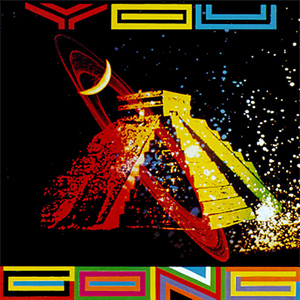
You is the fifth studio album by the progressive rock band Gong, released by Virgin Records in October 1974. It is the last album by Daevid Allen's iteration of the group until 1992's Shapeshifter. Recorded at Virgin's Manor Studios in Oxfordshire, England, side 1 was mixed at Pye Studios, Marble Arch, London, while side 2 was mixed at The Manor. It was produced by Simon Heyworth and Gong "under the universal influence of C.O.I.T., the Compagnie d'Opera Invisible de Thibet", and also engineered by Heyworth.
Pierre Moerlen was a French drummer and percussionist, best known for his work with Gong and Mike Oldfield and as Pierre Moerlen's Gong.
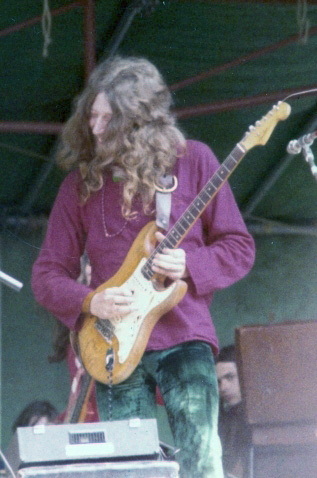
Khan were an English progressive rock band of the Canterbury Scene during 1971-1972.

Motivation Radio is the third studio album by British art rock musician Steve Hillage. Whilst touring in the United States in promotion of his previous album L (1976), Hillage grew disillusioned with the progressive rock tag attached to him by the media and fans, and disliked their attitude towards funk music, which Hillage was a big fan of. Hillage wanted to create a funk-influenced album as he was predominately listening to artists such as Funkadelic and Earth, Wind & Fire. Originally written as The Red Album in early 1977, it was retitled Motivation Radio prior to recording.
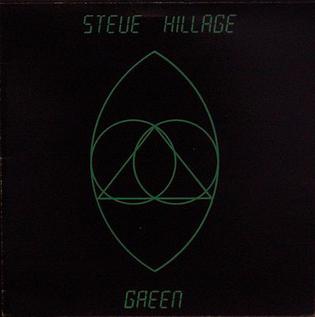
Green is the fourth studio album by British progressive rock musician Steve Hillage. Written in spring 1977 at the same time as his previous album, the funk-inflected Motivation Radio (1977), Green was originally going to be released as The Green Album as a companion to The Red Album. However, this plan was dropped and after a US tour in late 1977, Green was recorded alone, primarily in Dorking, Surrey, and in London.
Romantic Warriors III: Canterbury Tales (2015) is the third in a series of feature-length documentaries about Progressive rock written and directed by Adele Schmidt and José Zegarra Holder. This one focuses on the music of the Canterbury scene.









